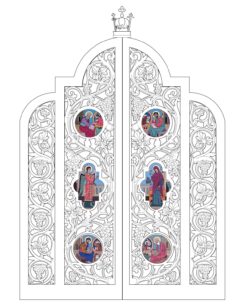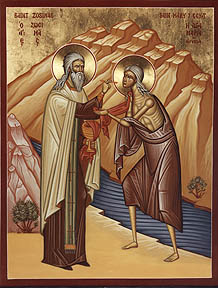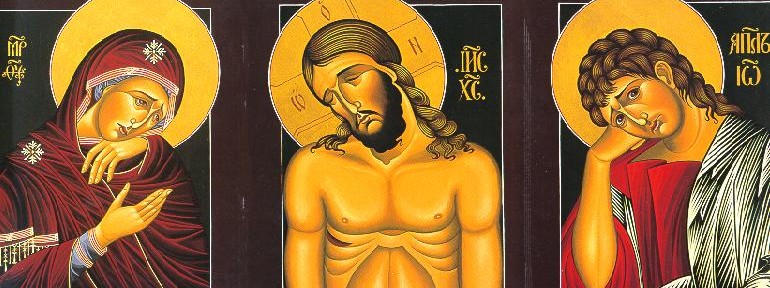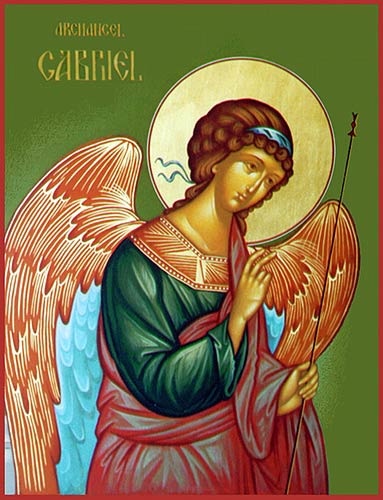When the All-Holy Virgin completed the fourteenth year after her birth and was entering her fifteenth year, after having spent eleven years of living and serving in the Temple of Jerusalem, the priests informed her that, according to the Law, she could not remain in the Temple but was required to be betrothed and enter into marriage. What a great surprise to the priests was the answer of the All-Holy Virgin that she had dedicated her life to God and that she desired to remain a Virgin until death, not wanting to enter into marriage with anyone! Then, according to Divine Providence, Zacharias, the high priest and father of the Forerunner, under the inspiration of God, and in agreement with the other priests, gathered twelve unwed men from the Tribe of David to betroth the Virgin Mary to one of them to preserve her virginity and to care for her. She was betrothed to Joseph of Nazareth who was her kinsman. In the house of Joseph, the All-Holy Virgin continued to live as she did in the Temple of Solomon, occupying her time in the reading of Sacred Scripture, in prayer, in Godly-thoughts, in fasting and in handiwork. She rarely went anywhere outside the house nor was she interested in worldly things and events. She spoke very little to anyone, if at all, and never without special need. More frequently she communicated with both of Joseph’s daughters. When the fullness of time had come, as prophesied by Daniel the Prophet, and when God was pleased to fulfill His promise to the banished Adam and to the Prophets, the great Archangel Gabriel appeared in the chamber of the All-Holy Virgin and, as some priestly writers wrote, precisely at that same moment when she held open the book of the Prophet Isaiah and was contemplating his great prophecy: “Behold, the virgin shall be with child, and bear a son!” (Isaiah 7:13). Gabriel appeared in all of his angelic brightness and saluted her: “Rejoice, highly favored one! The Lord is with you” (St. Luke 1:28), and the rest in order as it is written in the Gospel of the saintly Luke. With this angelic annunciation and the descent of the Holy Spirit upon the Virgin, the salvation of mankind and restoration of all creation began. The history of the New Testament was opened by the words of the Archangel Gabriel: “Rejoice, highly favored one” This is to imply that the New Testament was to signify joy to mankind and to all created things. It is from this that the Annunciation is considered not only a great feast, but a joyful feast as well.
The Prologue from Ohrid Continue reading March 25, 2017 The Annunciation of Our Most Holy Lady, the Mother of God and Ever-Virgin Mary; Passing into Eternal Life (1944) of Blessed Omelian (Emil) Kovch, Priest of Peremyshliany and Martyr of Majdanek





